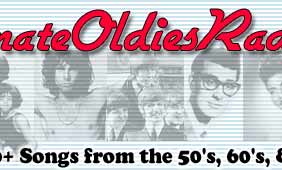 |
 |
 |
 |
 |
 |
|
[ Back to the listing ]
[ Post Reply ]
[ Help ]
[ Search ]
[ List All Forums ] |
|
Subject: RE: Paul Anka - What is More Common? |
|
John wrote: Not too sure why re remade rthe songs. Jim replied: Contractual. At the start of the 60's, the more established labels began to look at who they could poach from the smaller companies, particularly stars who might be able to sell albums in addition to singles, and who were on ontracts just about to expire. The idea was to take them on board, get a single out which charted, and use that to front a "Greatest Hits" album of (otherwise) remakes. That is why you often get these compilations where one song is definitely the original, but the others are remakes. In many cases, the singers were either not being paid by their old labels (Jimmie Rogers recieved virtually no royalties from Roulette), or being paid a tiny royalty (usually 1 cent per side), and the new labels offered better deals. In some cases, the new labels were eager to allow their signings to "go adult", and so lengthen their careers, or had contacts which could get them deals to write for movies (Paul Anka), or seasons in the top night-clubs, or parts in TV shows etc. RCA encouraged Anka to write for movies ("The Longest Day" for example), and to record in other languages, and he became a huge star in Italy in the early sixties. And the deal usually was - remake your hits for us and we will spend money on you. Anka's ABC contract expired in January 1962, and he promptly switched to RCA, had a hit with "Love Me Warm And Tender", which headlined an RCA Greatest Hits package along with remakes of 11 previous ABC sides. The remakes featured most of the original session musicians, and used the same studio, so on a lot of the tracks, it is difficult to be sure if you have the original or not. As an added bonus, these were in stereo. Duane Eddy similarly switched from Jamie to RCA in 1962, produced "Deep In The Heart Of Texas", and put that out on an LP with remakes of his previous hits. Although he continued to use the same musicians, the same studio and the same producer (Lee Hazlewood), a few of the remakes are not as good as the originals - not too sure why. The same happened with the Everly Brothers (from Cadence to Warner Brothers in 1960), although here, they had a number of huge Warner hits before they produced a mixed LP of originals and remakes. I was a great fan of Jimmie Rodgers (still am), and remember when I went to buy his Greatest Hits album, there were two of them in the store. Not knowing anything about remakes, I bought the one on Dot, because it contained his two most recent hits "No One Will Ever Know" and "The World I Used To Know", which were not on the Roulette album. Only when I got it home did I realise that my Roulette singles and the same songs on Dot, were very slightly different. In fact, they sounded better!, To this day, I still prefer the Dot versions. Done in the same studios in Nashville, using the same musicians, same backing vocals, but more modern equipment - they are (unusual for covers), probably better than the originals. In a few cases, the label move worked. The Everly Brothers had a some really big hits on Warner, although throughout the sixties, Cadence kept releasing singles also, and indeed, most of them charted too. In most cases, it did not. Jimmie Rodgers had a few minor hits for Dot, and when that five year contract ended, moved to A&M. Duane Eddy faded away on RCA, although he remained with them until 1970. He has since remade his original Jamie hits yet again. Fats Domino moved from Imperial to ABC, while Ricky Nelson changed from Imperial to Decca, but neither did much business on their new labels. Others tried changes of direction (Johnny Tillotson moved to MGM to go country, and charted, while Jerry Lee Lewis and Conway Twitty both managed to turn dying pop careers into huge country careers by moving to Mercury and MCA respectively). By the mid-sixties, the smaller labels were copying what the bigger labels had always done - namely making the singer sign a contract guaranteeing not to record any songs they had done for the original label, for a five year period and eventually the custom faded - at least until K-Tel arrived and started doint it wholesale again. And some of those K-Tel remakes were very poor. |
|